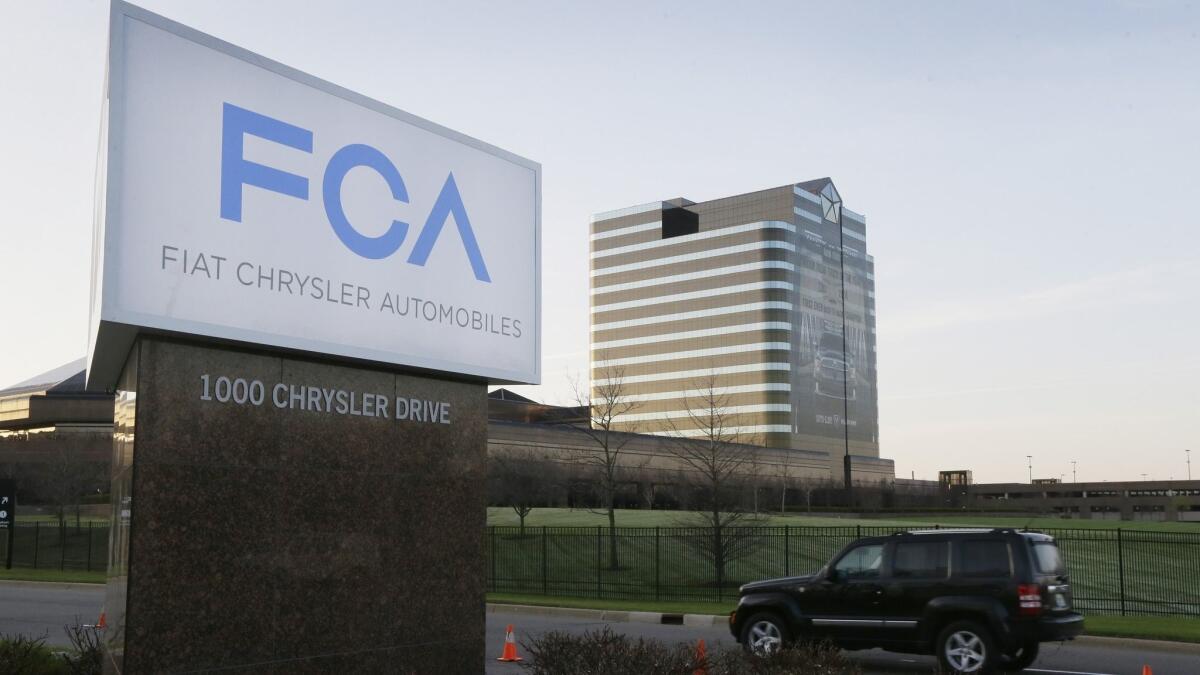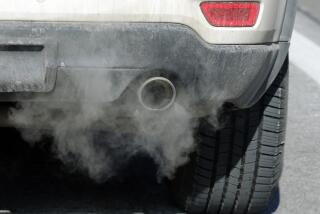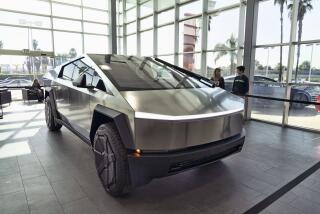Fiat Chrysler to pay about $800 million to settle emissions-cheating cases

- Share via
Fiat Chrysler will pay about $800 million to settle allegations that it cheated on emissions tests involving nearly 104,000 Jeep sport utility vehicles and Ram pickup trucks, including about 13,000 in California, the company and government authorities said Thursday.
The Italian American automaker will be required to pay $400 million in civil penalties to the federal government, California and other states, and more than $100 million to make environmental mitigation efforts and provide affected customers with a free update to fix the computer software that authorities alleged was at the heart of the cheating.
Fiat Chrysler and software maker Bosch also agreed to pay a total of about $307 million to settle a class-action lawsuit brought by owners and lessees of the vehicles, which will provide the plaintiffs with a cash payment of $990 to $3,075 each, according to the plaintiffs’ committee.
“Today’s settlement with Fiat Chrysler sends a clear and strong signal to manufacturers and consumers,” Andrew Wheeler, acting administrator of the U.S. Environmental Protection Agency, said at a news conference. Carmakers “should know that the cost of enforcement will be much higher than any competitive edge they may gain.”
Federal officials alleged that the 104,000 Jeep Grand Cherokees and Ram pickups, made from 2014 to 2016, were equipped with diesel engines programmed to run pollution controls during lab tests that would turn off under certain conditions on the road.
“By concealing this software, Fiat Chrysler deceived regulators and violated environmental law,” Associate Atty. Gen. Jesse Panuccio said. “Fiat Chrysler’s conduct was serious and egregious.”
The automaker did not admit wrongdoing. It has said that its software met all legal requirements and that it didn’t intend to break the law.
“The settlements do not change the company’s position that it did not engage in any deliberate scheme to install defeat devices to cheat emissions tests,” Fiat Chrysler said.
Under the deal, the company may be subject to additional penalties if at least 85% of the vehicles aren’t repaired within two years.
The settlement is the second between the U.S. government and an automaker over diesel emissions-cheating allegations.
In 2016, Volkswagen pleaded guilty to criminal charges and agreed to pay a $2.8-billion penalty to settle government lawsuits. The company also agreed to buy back some vehicles, repair others, pay to mitigate environmental harm and settle lawsuits for a cost of more than $30 billion. About 500,000 VW vehicles were involved in the U.S. cheating scandal.
The Justice Department also opened a criminal investigation into Fiat Chrysler’s conduct, and several state attorneys general also were investigating. The settlements announced Thursday do not resolve any criminal allegations, said Assistant Atty. Gen. Jeffrey Clark.
In last year’s third quarter, Fiat Chrysler, also known as FCA, took an $810-million charge to deal with possible U.S. diesel emissions settlement costs, cutting into the company’s profits.
The EPA first accused FCA of wrongdoing in January 2017, when it issued a notice alleging the company violated the Clean Air Act with excessive emissions of harmful nitrogen oxide. Four months later, the Justice Department sued on the EPA’s behalf, alleging that software on diesel engines enabled them to emit more pollution on the road than during EPA lab tests.
The government accused FCA of putting eight “software-based features” on 3-liter V-6 engines that powered the Jeep and Ram vehicles. FCA failed to disclose the software during the process to become certified so the vehicles can be sold, according to the EPA. The agency called the software a “defeat device” that changes the way the vehicles perform on treadmill tests in a laboratory.
“Each of these vehicles differs materially from the specifications provided to EPA in the certification applications,” the government said.
FCA contended that unlike VW, it did not install the software with intent to cheat on tests. The software turned off the pollution control system under extreme circumstances such as climbing mountains in order to prevent engine damage, which is allowed under federal regulations, FCA said.
The federal lawsuit sought civil fines of more than $4 billion, as well as court orders stopping the company from making or selling vehicles with undisclosed software.
At the time, FCA Chief Executive Sergio Marchionne denied any wrongdoing and said the EPA was blowing the issue out of proportion. Marchionne died last year.
Peltz is a Times staff writer. Balsamo and Krisher write for the Associated Press.







